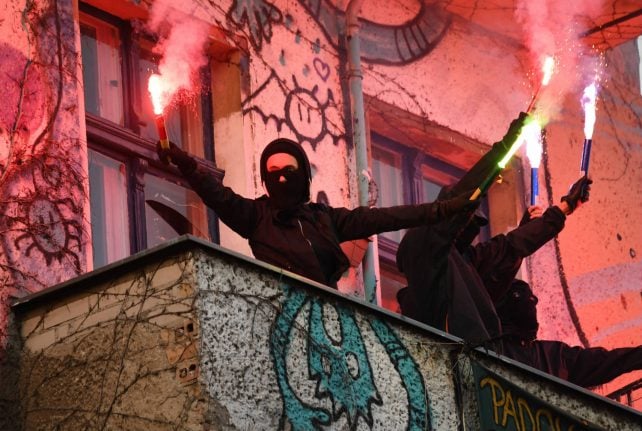Berlin police reported on Thursday morning that demonstrations against gentrification and rising house prices that took place in the east of the city passed without escalating out of control.
But some 30 officers were injured as protesters threw bottles from inside the crowd and close to one hundred arrests were made. Police chief Barbara Slowik said that while the incidents of violence were serious they were nothing that the police could not handle.
“Our strategy worked in its entirety. For the most part we have witnessed peaceful demonstrations,” Slowik said.
Authorities had been braced for an uptick in violence after left-wing groups announced plans to hold the demonstration in Friedrichshain, a neighbourhood the symbolizes the rampant pace of change in Berlin’s housing market.
SEE ALSO: Berlin fears resurgent May Day violence as protest moves east
The decision to move the demo was also motivated by a desire to separate it from the music festival that has been held in recent years in Kreuzberg, where violent clashes between protesters and police regularly erupted in the 1980s and 1990s.
In the days preceding the protest posters were plastered into walls around Berlin’s leftwing neighbourhoods calling on locals to emulate France’s gilets jaunes protesters and use violence against the police.
But the left wing demonstration remained calm until the early hours of the evening when some people started to throw glass bottles at the police officers guarding its perimeter. Berlin had brought in thousands of officers from across the country to help control the streets in the event of an escalation of the violence.
Complaints of 'massive police violence'
In other cities May Day protests also passed without serious incident. Hamburg, another centre of the radical left scene, witnessed a small march the passed peacefully.
In Duisburg in North-Rhine Westphalia, extreme-right movements called a protest on the traditional day of the workers,calling among other things for the release from jail for a well-known Holocaust denier.
Left-wing movements organized several counter-demonstrations. At one of the marches, police reported that they had to quell violence as 200 left-wing demonstrators tried to break through the police barricade. The demonstration organizers complained on social media of “massive police violence.”



 Please whitelist us to continue reading.
Please whitelist us to continue reading.
Member comments